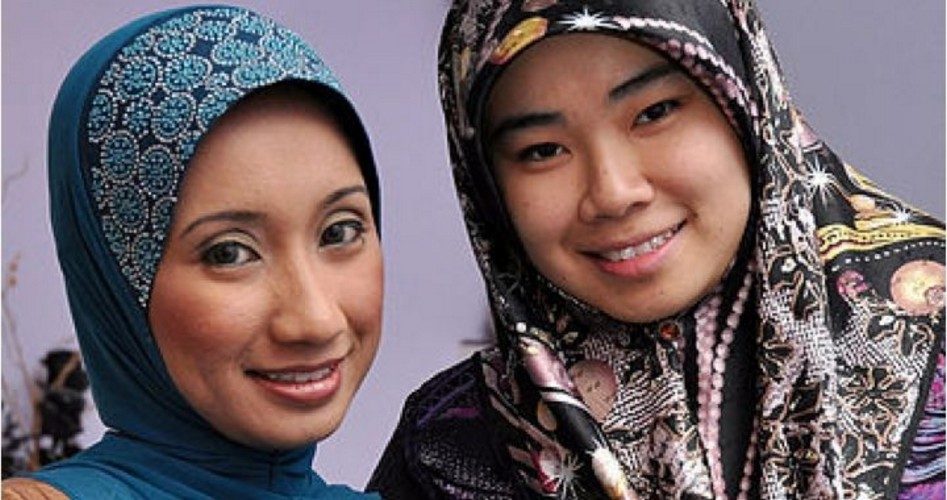
Alisyn Camerota of CNN recently did a feature story in the early-morning broadcast of New Day lamenting the alleged maltreatment of Muslim women in the aftermath of Donald Trump’s election. The central narrative of the feature was that since the murders by the Muslim husband and wife killers in San Bernardino, California, Muslim women wearing traditional headscarves have been targeted for harassment.
One woman in the report noted that because the photographs on television of the Muslim wife in San Bernardino showed her wearing a headscarf, it was now so dangerous to be seen with it that she had ceased wearing it in public. Another woman claimed that she had been spit on for wearing the head-covering.
At the conclusion of her report, Camerota raised the idea that it would be good for American women to begin wearing headscarves in order to stand with Muslim women. “Maybe there will be a movement where people wear the headscarf in solidarity. You know, even if you’re not Muslim,” Camerota suggested. “Maybe it’s the way people shave their heads, you know, sometimes in solidarity with somebody who is going through something.”
Camerota perhaps was referring to the practice of friends of a cancer victim shaving their heads after the one with cancer loses his or her hair from chemotherapy treatments.
Democrat presidential candidate Hillary Clinton received some negative reactions for praising an American athlete for wearing Islamic attire in the Olympics. When Ibtihaj Muhammad chose to participate in the 2016 Olympic games while dressed in Muslim attire, Clinton tweeted congratulations to her: “In Rio, Olympic fencer Ibtihaj Muhammad became the first American Muslim athlete to compete while wearing a hajib.”
Muhammad interjected herself into the presidential campaign by calling Trump’s words about the threat of Islamic terrorism “very dangerous.” Of course, Islamic terrorism is quite dangerous to some non-Muslim Americans — just ask the survivors of the attack in San Bernardino, or in the gay bar in Florida, or at the Boston Marathon, or at Fort Hood, and many other such attacks. What would Camerota ask us to wear in solidarity of innocent Americans killed or maimed in those terrorist attacks?
In a 2009 visit to Pakistan, while she was secretary of state, Hillary Clinton created a stir when she donned a head covering during a visit to the Badshahi Mosque. Defenders of the action said it was simply a “diplomatic courtesy,” and not an indication of submission to Islam. President Obama’s bowing to a Saudi king was also just a “diplomatic courtesy,” under this line of reasoning.
What is the origin of the hijab? According to a passage from the Quran, Allah told the prophet Muhammad, “Tell your wives and your daughters and the women of the believers [in Islam] to draw their cloaks all over their bodies that they may thus be distinguished and not molested.” Apparently, Muhammad’s army was allowed to rape captured women who were non-believers, and enslave them. But a Muslim woman could avoid this fate by wearing the burka, so they would be distinguished from non-Muslim women.
Certainly, religious liberty (or liberty in general, for that matter) dictates that if a woman, Muslim or non-Muslim, wishes to wear a headscarf, hijab, or burka, she should have the freedom to do so. But at the same time, such a decision should be left to the woman. If a mosque then opts to expel a woman for refusing to do so, then that is their liberty, as well. But they have no right to threaten her with bodily harm.
This is the way religious liberty works: If a person wishes to abandon the practices of a particular religion, whether Christian or something else, that person has every right to do so in the United States. On the other hand, that person then has no right to be a member of that church, synagogue, or any other place of worship, since all religions may set whatever requirements they so desire for membership or inclusion in that community of faith. Any person not conforming to those practices can be excluded from the fellowship of that community. If you wish to be a Baptist, you must undergo total immersion for baptism. Individuals and groups both have the constitutionally protected right to practice their religion as they see fit.
What the religious group does not have a right to do, however, is to use force upon a person who no longer wishes to follow the dictates of that community and desires to leave the fellowship.
Robert Spencer, a noted historian specializing in Islamic history and practice, raised a serious question about Camerota’s suggestion. “Where is Alyison Camerota’s concern for Aqsa Parvez, whose Muslim father choked her to death with her hijab after she refused to wear it?” he asked.
A Christian woman in Somalia was murdered by Muslims for refusing to wear a hijab. One woman in Britain chose not to wear the hijab, and was threatened by a Muslim cousin with harm to herself and her family.
Of course, there is almost total silence from progressives such as Camerota about the verbal and even physical assaults in those cases. Clearly, she is pushing the envelope into some chic new liberal cause. Today, it is headscarves for American women to identify with Muslim women.
We can only guess what it will be tomorrow.


